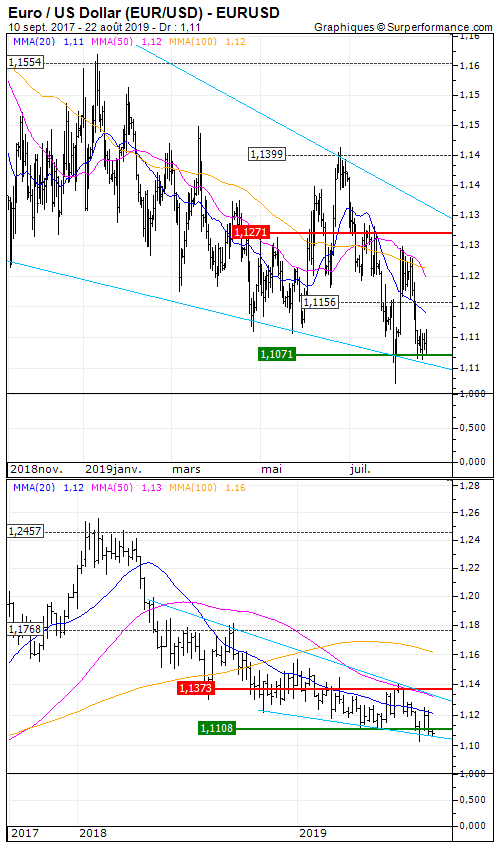Euro / US Dollar (EUR/USD) : The ECB is in the throes of a war
By Mathieu Burbau
While Frankfurt has already prepared the markets for more monetary support at its July meeting, the situation has since deteriorated further with the more or less credible assumptions of a no deal on Brexit, a recession in Germany or the arrival of the far right in power in Italy. In addition to these bleak prospects, there is a deleterious climate where trade conflict, currency war and global slowdown continue to weigh on the economy of the Nineteen. In an interview with the Wall Street Journal, Olli Rehn, Governor of the Bank of Finland and member of the ECB, announces the colour by referring to a "set of important and powerful measures for September" and by considering it preferable to "exceed" expectations.
On the other side of the Atlantic, the Federal Reserve is taking care of its communication by lowering its key rate by a quarter of a point, while avoiding promising more support in the short term. Against the backdrop of rather solid economic statistics, James Bullard (FED Saint Louis), a well-known Dovish, considers that rates are currently in the "right range". Feeling that his country is gradually sinking into the foreign exchange battle, Donald Trump tramples on the independence of the American monetary authority by describing it as "incompetent".
Graphically, the Euro continues to slide slowly as each rebound attempt offers a better sales opportunity. In weekly, a weekly close below 1.1108 would even pave the way for more bearish momentum towards 1.0590 USD



